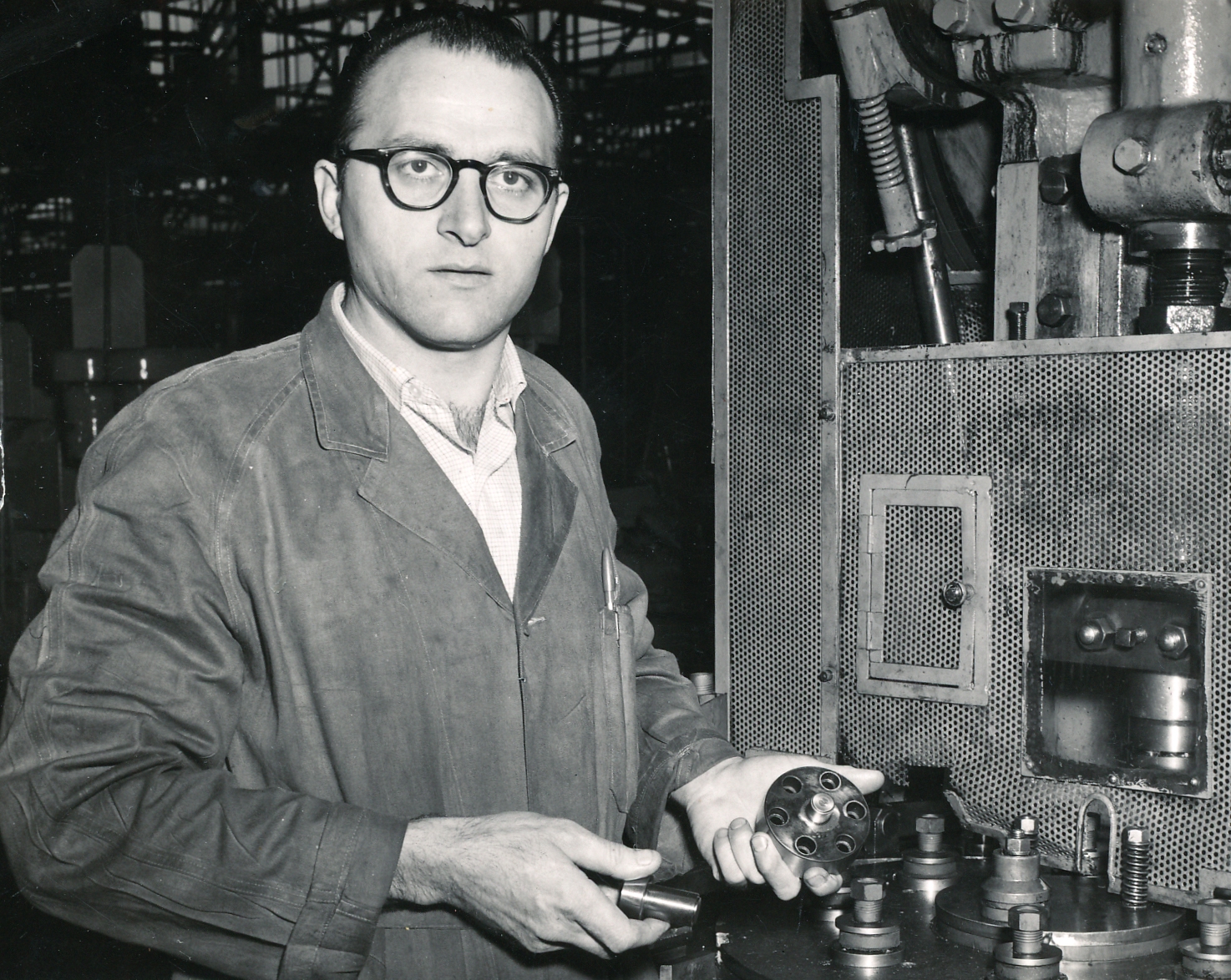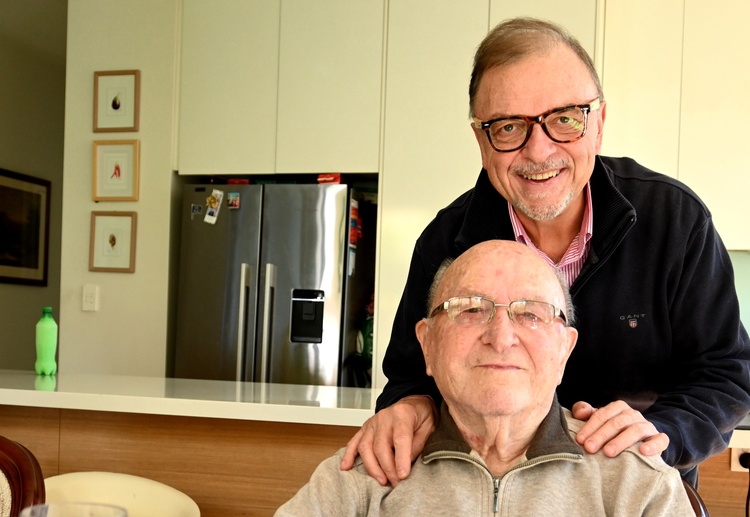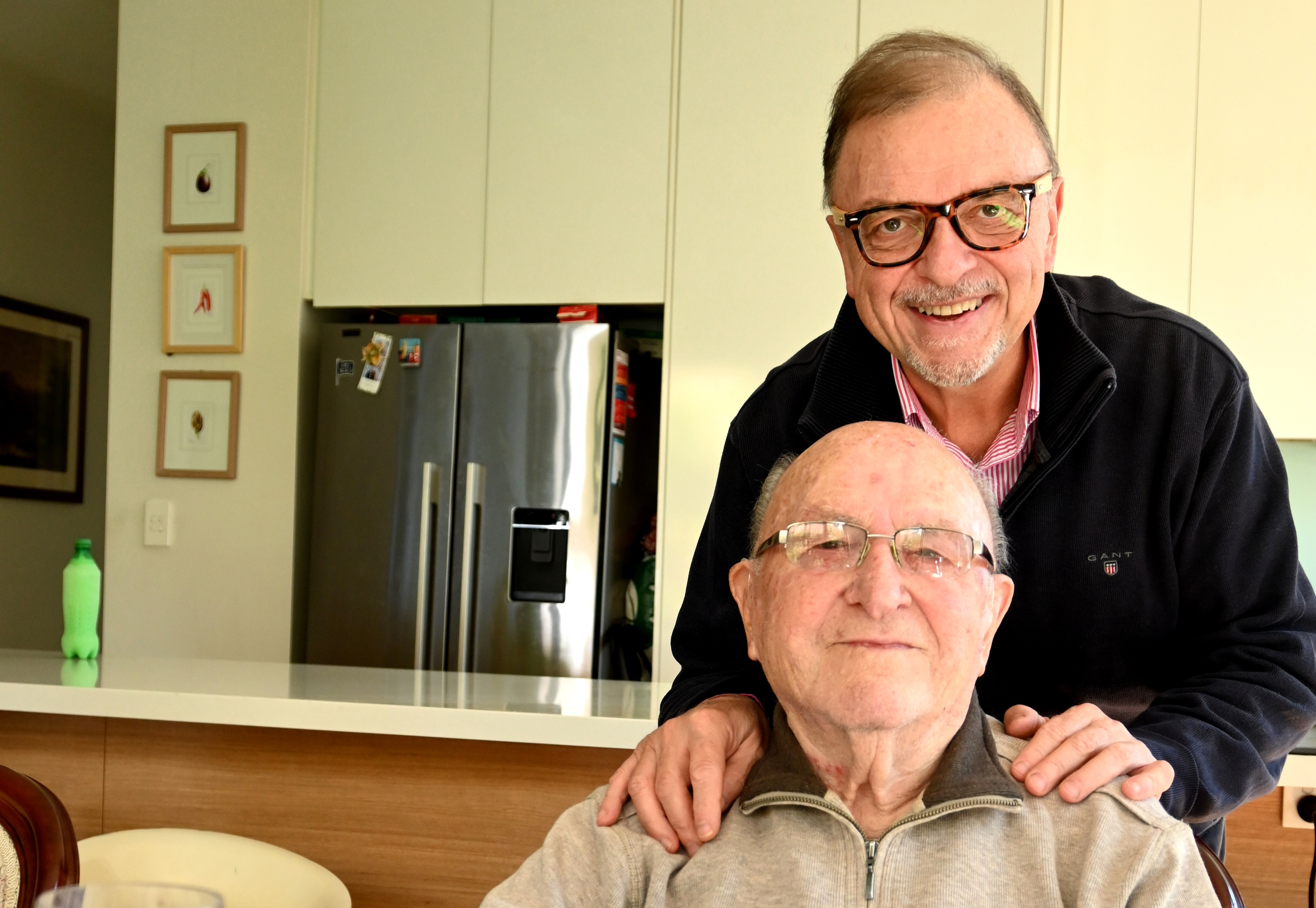In the leafy suburb of Balwyn, I meet Max Petterlin and his father Giuliano. They are waiting for me and welcome me at the entrance of their elegant and bright home, inviting me into the spacious living and dining room where Max has prepared a tasty home-cooked lunch.
Across the table I notice a plush cloth, because father and son, and often other son Daniel, get together five days a week to play scala 40 or rummy.
I look at the face of 93-year-old Giuliano Petterlin (who turns 94 this September) and clearly notice serenity and patience; qualities formed during his long life spent in different places, having to deal with situations and decisions not only for himself but also for his family.
In recounting the whirlwind of vicissitudes in Italy, Eritrea, Saudi Arabia, and Australia, Giuliano seems more inclined to reminisce about his experiences as a young man in the former Italian colony, or his time in Arabia, as opposed to his years in Australia.
He begins by explaining how his father Celeste and mother Emma were originally from Rovolon, in the province of Padua. In the 1920s the small town, like everywhere in Italy, was a difficult place to find a lasting job.
“At the suggestion of Uncle Giuseppe Bonanomi, my mum’s brother, my father Celeste found a steady job in Prato, Tuscany, and was soon joined by Mum, along with my older brother Marcello and my sister Mafalda,” Giuliano explained.
“Our family began to experience a period of tranquillity and prosperity with my father’s work in road construction.”
The family grew by two new mouths to feed with the birth of Giuliano and then his brother Umberto. “In 1937 I was eight years old,” Giuliano continued, “I would hear Dad discussing with Mum how several other villagers, for more than two years, had gone to live in the Italian colonies in Libya, Abyssinia (now Ethiopia), Eritrea and Somalia.”
“[In the colonies] there was a great need for workers in the construction sector, in the construction of roads, government buildings, schools and hotels.
“My father, in 1937, left for Africa; the following year, my mother, Marcello, Mafalda, Umberto and I boarded a ship in Naples bound for Africa to join them. Today, only me and my sister Maria, who was born in Asmara, are still alive.”
After another sip of wine, Giuliano continued: “My family settled in Segheneyti, a town 44 kilometres from Asmara, between the villages of Dekemhare and Adi Keyh.
“Asmara used to be called ‘Little Rome’: wide streets, Italian-style houses, schools, more than 400 buildings, elegant stores, hotels, bars and restaurants with Italian names, churches, and even a modern sewage plant.
“In addition to 250 other families, we also planted our roots in African soil. When I returned to Asmara with my wife about 15 years ago, they told me that only seven elderly Italians were left.”
“In my younger years, I managed to do different jobs. For example, when I was 15, I learned the baker’s trade, then I followed my older brother Marcello to Dirham, in Saudi Arabia, where he had gone to work in the oil industry.
“I took a job as an assistant cook, and then, still in the oil business, I worked in Basra as an assistant to transport tankers of refined fuel.
“I remember well when I went to the bank and, to my surprise, discovered that I had the large sum of 870 British pounds. I had never seen such a large sum!"
Giuliano spoke about how his father was a very religious man, and recalled an incident where, one Sunday on his way home from church with his daughter Mary, he noticed that some locals were following him, asking for something to eat.
With each step, their numbers increased. His father stopped at the neighbourhood baker to order a large basket of bread, which he brought home to his wife who was already cooking a pot of soup to serve with the bread to the needy.
“When we went to visit his grave in the local cemetery, we indeed noticed how his grave, compared to others, was clean and well cared for by someone local who still remembers him,” he said.
In 1954, at the age of 24, Giuliano left Naples aboard the motor ship ‘Oceania’ and arrived in Port Melbourne. Soon after, he fell in love with a young Sicilian woman, Maria, a native of Cassaro, in the province of Syracuse. They got married at St. Ignatius Church in Richmond.
Soon after he arrived in Australia, he was employed by the mechanical department of Holden, working in the large automobile assembly shops at Fishermen’s Bend, Port Melbourne.

A photo of a 25-year-old Giuliano in 1954, working at the Holden factory in Port Melbourne
Then for many years before his retirement, Giuliano Petterlin worked at the Cotek company in Brunswick, in the maintenance department. The role sent him to the United States and Germany to study, design and manufacture special-purpose machines.
I ask him how he spends his time today, and without hesitation he tells me, “I always find something to do, but when I don’t know how to use my free time, I read and enjoy doing crossword puzzles, and playing scala 40 or rummy with some of my children. But I always manage to fill my days with lots of activities.”
“My days begin with a regular twenty-kilometre drive from home to Springvale Cemetery where I visit the grave of my dear wife Maria.
“I miss her so much; she was the love of my life.
“Of course, I cannot complain, I have four children, three of them married, and five grandchildren who love me, but what I still miss after two years, is my wife.
“I thank Heaven for a life well-lived and well-enjoyed, and to be surrounded by a wonderful family. And if the Lord permits, perhaps I will travel to Italy with one of my grandchildren for my last farewell to the place of my birth and childhood.”












